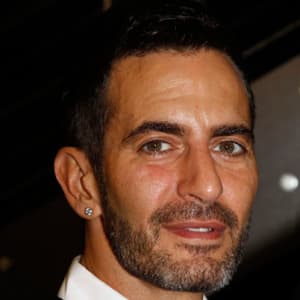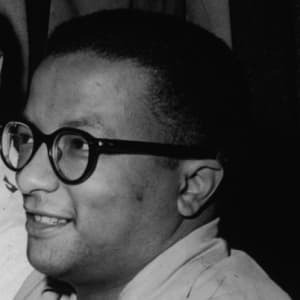
Dave Foley
Dave Foley was a founding member of the comedy troupe Kids in the Hall and was one of the leads on the TV sitcom NewsRadio.
Synopsis
Dave Foley co-founded the comedy troupe Kids in the Hall in 1984, and in 1989, a self-titled show reached American television audiences on HBO. By the end of its run in 1994, The Kids in the Hall played on CBS primetime and enjoyed frequent reruns on Comedy Central. In 1995, Foley landed a starring role on TV’s NewsRadio and went on to both TV and film acting after the show’s long run.
Early Life
Actor and comedian David Foley was born David Scott Foley on January 4, 1963, in Toronto, Canada. His father, Michael, was a steamfitter, and his mother, Mary, a homemaker. Foley says that his family "was always very, very aware of TV, particularly comedy shows." Foley watched the Dick Van Dyke Show obsessively as a child, but his parents never thought he would become a comedian or actor because of his extreme shyness.
"Dave would run away if he saw a camera," his mother recalls. Foley, who read the dictionary for fun, spent his free time writing stories and jokes, and his parents thought he might become a writer. However, Foley finally emerged from his introverted shell when his classmates laughed at a comedy story he wrote for a school assignment.
Despite his literary bent, Foley regularly skipped school and his parents placed him in a Toronto alternative high school for intelligent, but struggling, students. In 1980, at the age of 17, he dropped out of school to pursue a career as a stand-up comedian. Foley enrolled in improv acting classes at the Second City Theatre in Toronto, a breeding ground for young comedians. There he met Kevin McDonald, and the fast friends formed a comedy duo that performed local stand-up comedy shows throughout the 1980s.
In 1984, Foley and McDonald teamed up with another Canadian comedy duo, Mark McKinney and Bruce McCulloch, as well as solo comedian Scott Thompson, to form the comedy troupe The Kids in the Hall. The Kids in the Hall landed gigs throughout the Toronto area, including regular appearances at the downtown Rivoli nightclub, and quickly gained popularity for their smart and provocative brand of humor.
'The Kids in the Hall'
The Kids in the Hall gained the attention of Saturday Night Live producer Lorne Michaels, who was looking to launch another sketch comedy TV show. In 1988, The Kids in the Hall debuted on Canada's CBC network. A year later, they reached American television audiences on cable network HBO. By the end of its run in 1994, The Kids in the Hall played on CBS primetime and enjoyed frequent reruns on Comedy Central.
Inspired largely by Monty Python, the show's outlandish humor mocked such taboo subjects as religion, sexuality and disease, and was perhaps best known for the actors' frequent cross-dressing. According to Foley, cross-dressing was more of a practical necessity than an artistic choice. "The drag thing was mostly because we couldn't get any women to stay in the group," he admits. Foley carved out a role as the troupe's straight man, earning laughs for his deadpan responses to the other characters' wild antics.
The Kids in the Hall developed a cult following and earned widespread critical acclaim. The show was nominated for several Emmy Awards and won Canada's Gemini Award multiple times. Despite their success, the cast suffered from intense off-screen fights. "You had to fight to get your stuff through the filter of the group and convince everybody that what you were doing was funny," Foley remembers. "We never had a mechanism with each other for compromise."
In 1995, The Kids in the Hall began work on a film, Kids in the Hall: Brain Candy, but after one too many fights over the script, Foley left the group. (Foley eventually did appear in the 1996 film, but he is the only member of the group not credited as a writer).
Mainstream Success
After leaving The Kids in the Hall, Foley immediately landed his next big role on the NBC sitcom NewsRadio. He played closeted Canadian news director Dave Nelson — a part written especially for Foley. After spending a decade in a comedy troupe, Foley says that he welcomed the return to relative normalcy that came with acting in a sitcom. He recalls, "It was a huge relief, not being a member of a troupe, being able to make your own decisions and kind of live your own life."
While working in the ensemble casts of The Kids in the Hall and NewsRadio, Foley also enjoyed a successful solo career as film and television actor. He made his big-screen debut in the 1986 film High Stakes and appeared in the universally panned 1994 film It's Pat, for which he earned a Razzie Award nomination for Worst Screen Couple.
Foley's acting career took a turn for the better when played the voice of Flik, the heroic ant protagonist of Disney Pixar's 1998 animated blockbuster, A Bug's Life. Foley has since performed in a slew of hit animated films including It's Tough to Be a Bug (1998), Toy Story 2 (1999) and Cars (2006). He has also done voiceover acting for South Park: Bigger, Longer & Uncut (1999), Lilo & Stich (2003) and Despicable Me (2010). In addition to films, Foley has guest starred on numerous popular TV shows such as King of Queens, Just Shoot Me, Will & Grace, Scrubs, It's Always Sunny in Philadelphia, The Middle and Hot in Cleveland.
Personal Life
Dave Foley is also a poker enthusiast, and from 2004-'06 he hosted Bravo's Celebrity Poker Showdown. Foley recently reunited with The Kids in the Hall to film a revival miniseries, Kids in the Hall: Death Comes to Town, which aired on CBC in 2010.
He married Tabitha Southey in 1991, and the couple had two children, Ned and Basil, before divorcing in 1997. He married Crissy Guerrero in 2001, and they had a daughter, Alina Chiara, before also splitting ways in 2008.
After two decades as an international celebrity, the once-introverted child remains modest, self-effacing and somewhat uncomfortable in the spotlight. NewsRadio co-star Phil Hartman said of Foley, "Dave is a very diplomatic and peaceful personality." In fact, Foley says that he feels no different as a celebrity than he did when he was an unknown aspiring comic struggling to land gigs at Toronto nightclubs. "I always assumed that famous people have something about them that made them more recognizable than ordinary people," Foley said. "Now that I am, I guess, a famous person, I realize that, no … It's just being on television."



